Ah, summer! Time for poolside reading. For hiking mountains. For cross-country road trips. Many of us think of the summer months as a chance to slow the pace and take a break from the rigors of work and/or academic life. Although weeks on the beach may be appealing, more and more Rhodes students are opting instead to take advantage of special academic and internship opportunities offered by the college during the summer months. In fact, over the past few years, summer activity has started to look more and more like fall and spring, moving Rhodes closer to becoming a year-round campus.
Familiar programs like the Rhodes Institute for Regional Studies and European Studies have given students enhanced academic experiences for several years. Four years ago, the college began offering regular summer classes. High- schoolers flock to the popular Summer Writing Institute. This year, the inaugural Mock Trial Academy lifts off. And no one can miss the excitement radiating from young boys and girls attending one of Rhodes’ many athletic camps or spending the day on campus with their classmates from schools such as Soulsville.
For more on the Writing Institute, Mock Trial Academy, and athletic camps, go to "Putting the 'Camp' in Campus."
Summer School
The list of summer classes available at Rhodes has steadily expanded since 2012, the first year such courses were offered. Seventeen classes, encompassing languages, science, math, and English, were listed for 2016. The number of students has grown as well, from 26 in 2012 to more than 120 in 2016. Summer students usually take one course for a five-week session that lasts from mid-May until mid-June, with a possibility of a second session for a few summer courses that can be taken in sequence.
Associate Dean of Academic Affairs Michelle Mattson says the advantages of summer classes are myriad: “Students who may struggle with a course in a fall or spring semester, when they are taking a full complement of classes, now have the opportunity to take just the one class and really concentrate on it. That is hugely helpful, as is a smaller class. The summer courses are capped at 12 students now. Some of the foundation classes tend to be large during the fall and spring; it is nice to be able to offer a smaller class option.”
Summer offerings also alleviate the “curricular bottleneck” of popular or required classes that fill up quickly and enable students to complete their coursework within a needed timeframe. And as Mattson points out, the campus is otherwise underutilized during the summer, so why not make better use of it? A summer on campus gives students a chance to get to know others outside their major—and the extracurricular activities on campus are increasing every year, ensuring that students do not feel isolated on campus. Plus they have all of Memphis at their doorstep and can take advantage of the more leisurely academic schedule to explore the city.
Study Abroad and Maymesters
Still others use the summer break to study off campus—sometimes far, far off! European Studies is a 16-week program offered jointly by Rhodes and Sewanee, The University of the South. Beginning in mid-summer with three weeks of study at Rhodes, the full semester of study abroad takes students to the University of Durham and Lincoln College in England, followed by five weeks of travel in Western Europe.
Rhodes' popular Maymester programs offer a chance for students to follow their interests while receiving class credit. Three-week courses with specialized topics, Maymesters take place abroad and throughout the United States. In 2016, students studied in Germany, Poland, and the Czech Republic as part of the Holocaust Travel Seminar or focused on the ecology of the Greater Yellowstone Ecosystem as a part of the Rocky Mountain Ecology Field Research course. Other studies include exploring the roots of the civil rights movement, the connection between Cuba and Russia, and French language and culture.
For the first time this summer, Search Abroad gave sophomore students an opportunity to take the third semester of Search as a Maymester abroad. This year's course of study was located in Germany. 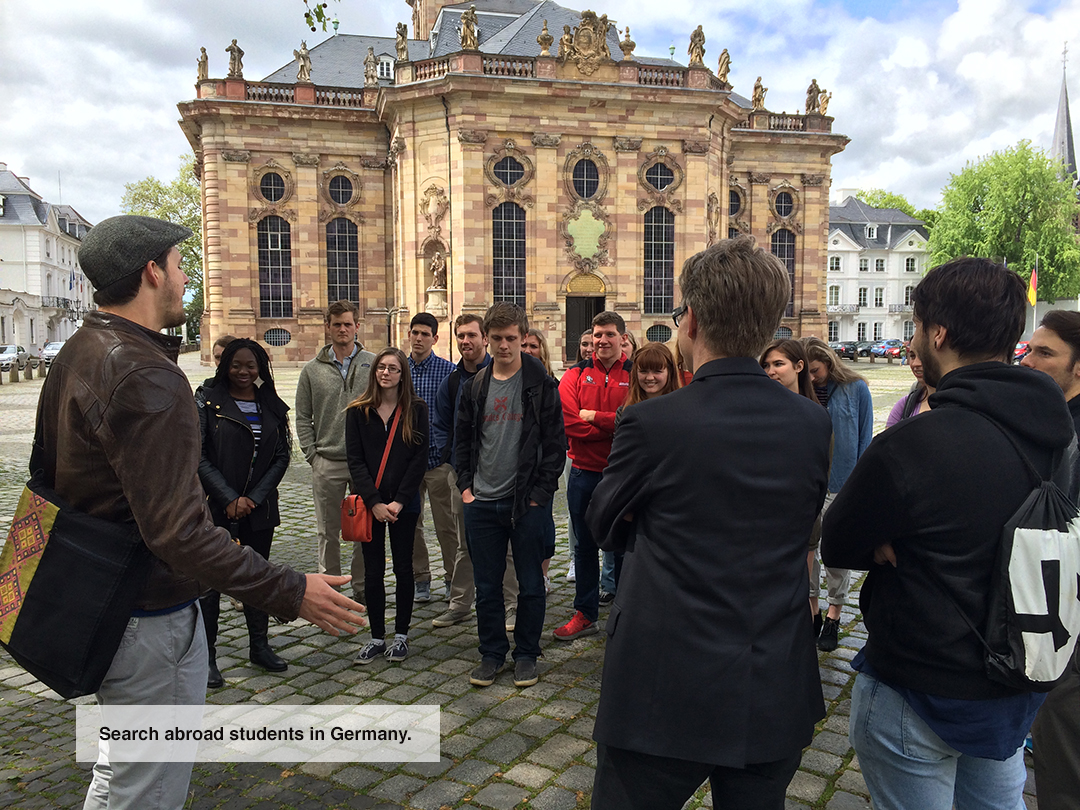 Erin Hillis, associate director of International Programs, says Rhodes hopes to expand the model in future years to include additional locations.
Erin Hillis, associate director of International Programs, says Rhodes hopes to expand the model in future years to include additional locations.
For an in-depth look at the Rocky Mountain Ecology Field Research Maymester, see "Finding Something in Yourself."
“Many students I know, with double majors or minors or plans to study abroad, can barely fit all of their foundations classes in a schedule to graduate on time. Providing summer classes and opportunities is a fantastic way to earn Rhodes credit,” says Regan Adolph ’16. A native of Louisiana, this year Adolph spent her third summer with the Rhodes Archaeology Maymester and Field Research in Environmental Archaeology—a mouthful more commonly known as the Field School.
The Field School: Digging Deep
The Field School (technically known as the Rhodes College Maymester in Environmental Archaeology) is located at Ames Plantation, just 50 miles from Memphis. Encompassing 20,000 acres and at least 250 known historical sites, the plantation is the perfect spot for archaeological, biological, and environmental research. With no previous experience necessary, the study offers students the chance to get their hands dirty—literally, as a major component is an actual dig. Lead faculty member Dr. Kimberly Kasper, department of anthropology and sociology, says the course allows students to get the best of both worlds in academic and physical experience. “We are in the field digging every morning, and in the afternoons the students catalog their finds and learn from guest lecturers sharing their expertise.”
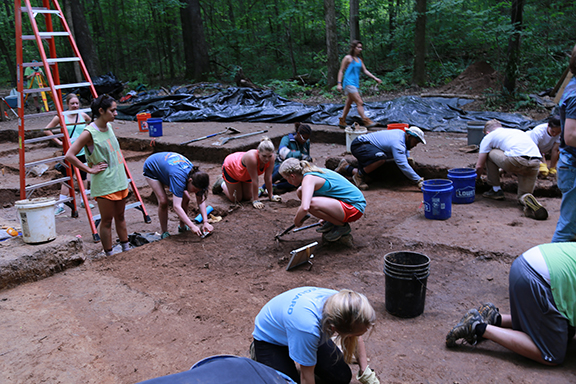
For the past two years, the Rhodes group has excavated the slave cabins and manor house of Fanny Dickins, a woman who owned and ran her own plantation, a rarity for the time. Though students’ days on the plantation were uniformly structured, each day’s dig came with surprises, and every lecture and lab was unique and interesting, says Adolph. “We studied tree ring growth and charcoal wood samples, looked at microscopic pollen seeds, gathered clay to make our own pots, gathered wild foodstuffs, and toasted them over a fire. On the weekends, we took field trips to other archaeology sites and Native American mounds, as well as to a pig roast on the nearby farm of one of the professors. My favorite thing was just being on the plantation after a satisfying workday in the field—spotting cows, horses, and rabbits, and finding pretty spots to journal.”
The curriculum is designed to have a more modern component as well, teaching the students to connect the dots between past events and current situations. Claire Norton ’17 says she has a clearer understanding of how food inequities in the Mid-South are tied to the agricultural practices of the 1800s, for example.
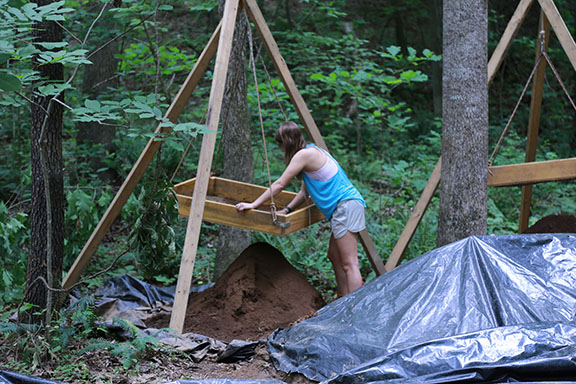
“Gaining perspective on how inequalities are carried across time has greatly broadened my understanding. Relevancy is brought to the discipline of archaeology through unpacking the history behind our current culture in a way that sheds light on practices ingrained in society today,” she explains.
The Field School offers an opportunity to earn four credits in history and/or science outside the traditional classroom setting. As a history major with plans to pursue graduate studies in the fall of 2017, Adolph felt the course was a perfect fit for her science requirement. Norton, of Texarkana, TX, is an anthropology and sociology major with a minor in environmental studies and archaeology. Before she joined the 2015 Field School, she was hired as a research assistant in the archeology lab. As much of her research was tied to the plantation, she found the immersive environment very helpful in understanding the history and events that occurred there. And, adds Norton, “Actually engaging with these culturally influenced sites at Ames Plantation is a lot more exciting than just reading about them.”
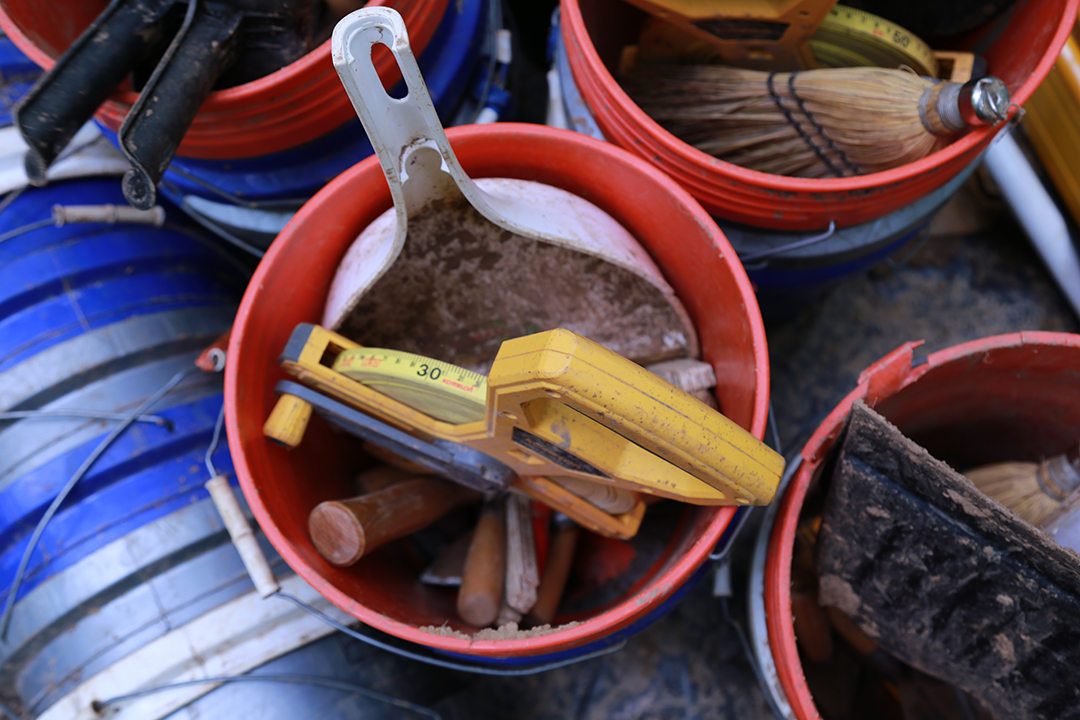
Last summer, the team found a second house on the property, followed by the discovery of a rich organic layer on the second to last day of the dig. “We are not sure what it is—it could be a root cellar or the floor of a house,” says Kasper. “It was really hard to wait until this year to find out more!” This year, the dig site rendered numerous items considered household artifacts such as a knife, pipes, and beads.
Memphian Ethan Williford ’17 was a part of the dig for the first time in 2016 and, prior to participating, looked forward with anticipation: “As a history major, I constantly come into contact with archaeological sources, but have never fully understood the processes necessary for attaining them. I am glad to finally learn the methodology and techniques of archaeology. I’m sure the Field School will be a wonderful experience that will provide lasting memories, and I know this opportunity and others like it will help me when I search for a job or post-graduate education.”
RIRS Students Take a New Look at the Mid-South
Of all the programs offering experiential learning to Rhodes students, the Rhodes Institute for Regional Studies (RIRS) is arguably the best known. Begun in 2003, RIRS has an unsurpassed track record of lively, engaged community scholarship conducted each summer by a select group of students.
Julian Robey ’16 found RIRS helpful in preparing for future opportunities and important for cultivating the liberal arts experience. An anthropology and sociology major from St. Paul, MN, he is starting graduate school in public health at the University of Michigan in the fall. “I probably wouldn't be nearly as ready as I am now had it not been for my participation in the Rhodes Institute for Regional Studies, and I am very grateful for the experience.”
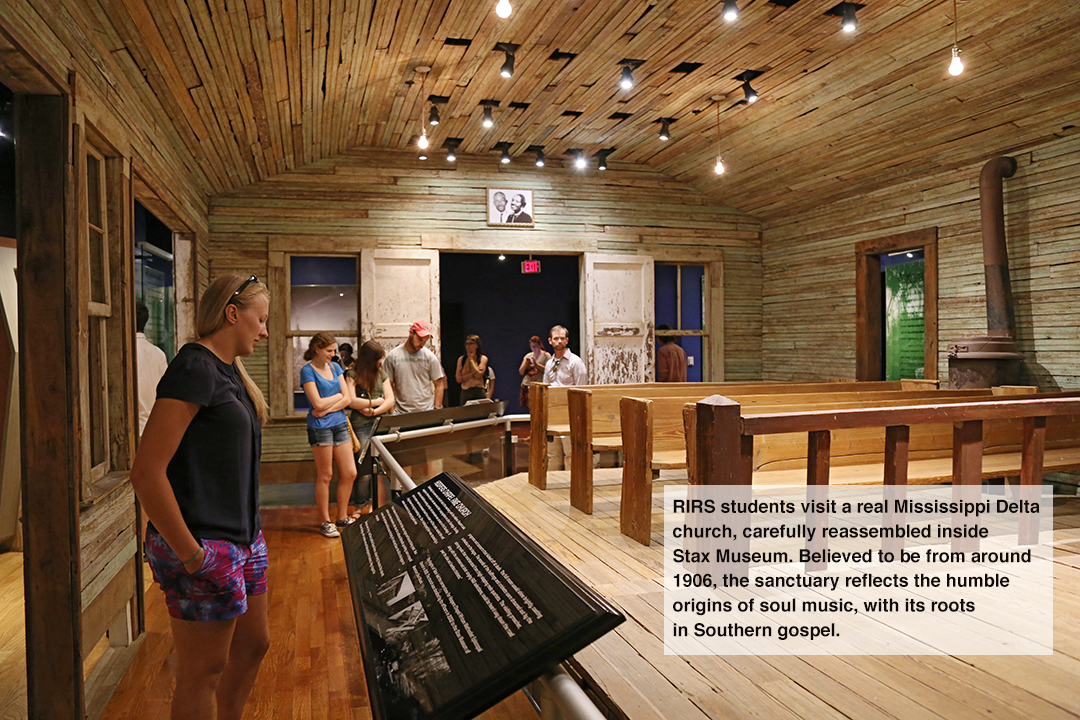
The program affords 15 to 20 students the opportunity of truly seeing Memphis in a different way, says RIRS Director Dr. Charles McKinney. “Students have to become very intentional, very mindful, of forming and maintaining relationships within the city. It makes for a very powerful experience.”
During the application process, students propose a viable research topic focused on Memphis and the Mid-South. Preliminary work ensures the students hit the ground running, says McKinney. During the first week of the institute, students engage in an immersive regional studies seminar. The next six weeks are spent in independent and intensive research, followed by a presentation of their findings. Topics are wide-ranging, and presentations can take the form of papers, documentary films, podcasts, visual art projects, and more.
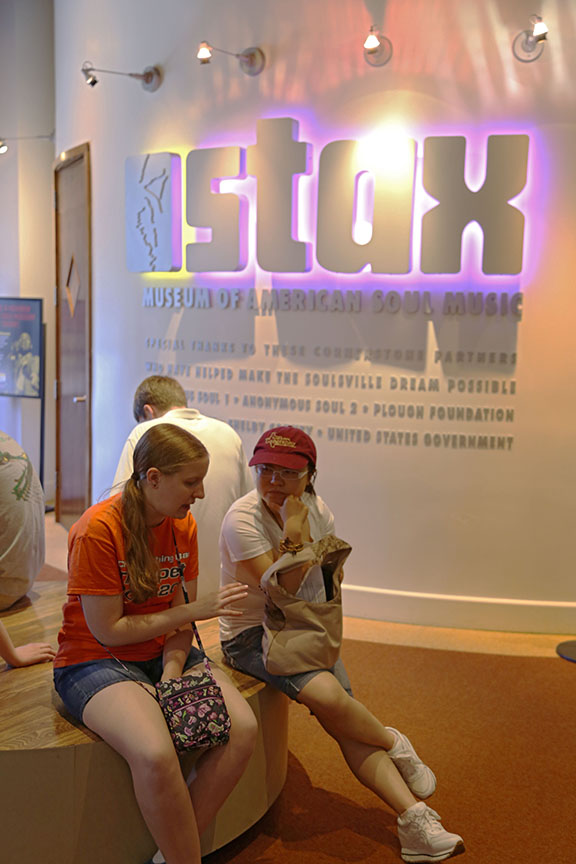
Maddie McGrady ’17 of Illinois participated in the institute in 2015 and appreciated the supportive network of faculty mentors and student fellows that offer guidance and feedback throughout the program. Students meet with a faculty member once a week and have opportunities to meet as a group twice weekly.
A history and Spanish major, McGrady studied the life and works of Memphian Elizabeth Avery Meriwether, a Confederate wife turned Progressive Era activist and author. “My research culminated in a paper that examined Meriwether's self-proclaimed role as guardian of Confederate memory,” she says.


Robey became interested in RIRS after taking an Urban Social Problems class and learning how location plays a major role in the health outcomes of individuals. His research for the institute built on a previous study of factors that contributed to the high rate of infant mortality in Memphis, broadening the approach to look at a variety of health disparities and connections to residential segregation.
The research is graduate level, says McKinney, and often the projects take on a life of their own. The 2015 project submitted by Lara Johnson ’16 is a prime example. A self-described “huge nerd,” Johnson originally planned to research the clash between geek pop culture and social conservatism in the Mid-South. Over her six weeks of research, the project grew from a 10-minute exploration of tension into a 30-minute documentary film celebrating geek culture.
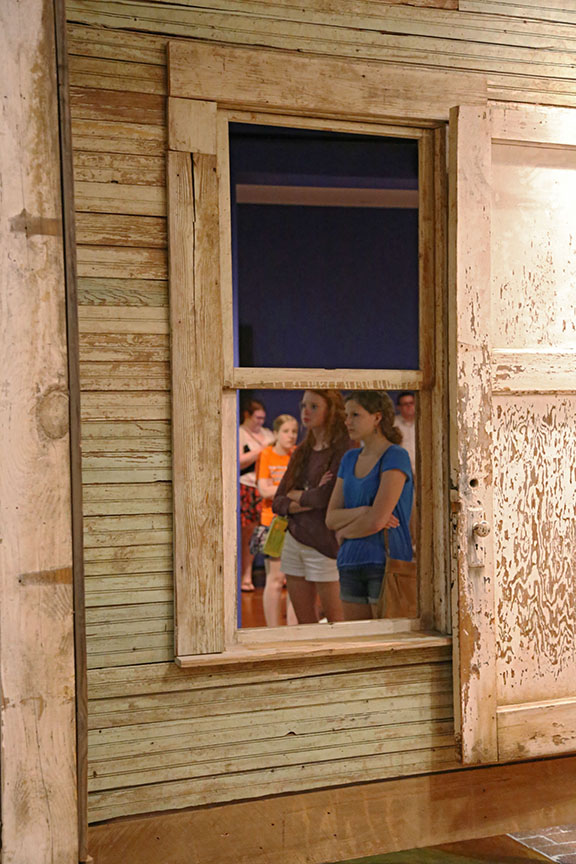
The change was due to the way Memphis accepts and embraces differences, she says. “Memphis roots for the underdog; it has a more liberal, accepting environment than some other cities in the state.”
Johnson says she enjoyed the freedom the institute gave her to figure out the direction of her project, develop relationships with faculty and students, and form meaningful connections in Memphis. And she is especially grateful for the doors the project opened for her: Johnson applied for and received a prestigious Watson Fellowship using her Institute research project. The Fellowship awards promising students a stipend to purposefully explore the world for one full year.
Johnson was one of 30 Watson recipients selected from more than 2,000 applicants. The Franklin, TN, native graduated in May with a major in studio art and minor in film studies, and soon will be off to see—and film—the world. She plans to travel to Japan, India, and Poland to expand her regional study, “Geekland: Fan Culture in Memphis,” to “A Geek About Geeks: An International Exploration of Geek Identity and Culture.”
“There is no way this would have happened without RIRS. I don’t think it is too much to say that I owe everything to my summer opportunities,” Johnson says.
Summer Service Fellows Form Community Connections
"Memphis is an amazing place to spend a summer,” says Grant Ebbersole ’17. “There are always so many great things going on, and it’s nice to not have a full class load and the opportunity to enjoy all the city has to offer. Just by going to my fellowship every day, I got to see Memphis less as a Rhodes student and more as a Memphian.”
Ebbersole’s internship was another chance Rhodes offers students to expand on an interest through a summer program centered in Memphis. The Summer Service Fellowship provides participants with the opportunity to work for a nonprofit organization of their choosing for nine weeks, beginning at the end of May.
Hailing from a small town in Illinois, Ebbersole was attracted to Rhodes’ commitment to serving the larger community and was eager for the immersive experience the fellowship offered. He chose to work at the Community Alliance for the Homeless, an intermediary organization that leads community efforts to end homelessness in Memphis. His passion for working with the homeless began his freshman year when he got involved with The Bridge, a street newspaper founded and run by Rhodes students.
“Many students find and follow their passion through the summer fellowship,” says Career Services Director Sandi George Tracy. “They have an impact on the city and an impact on others on campus—a ripple effect to their friends who are encouraged to have this experience themselves.”
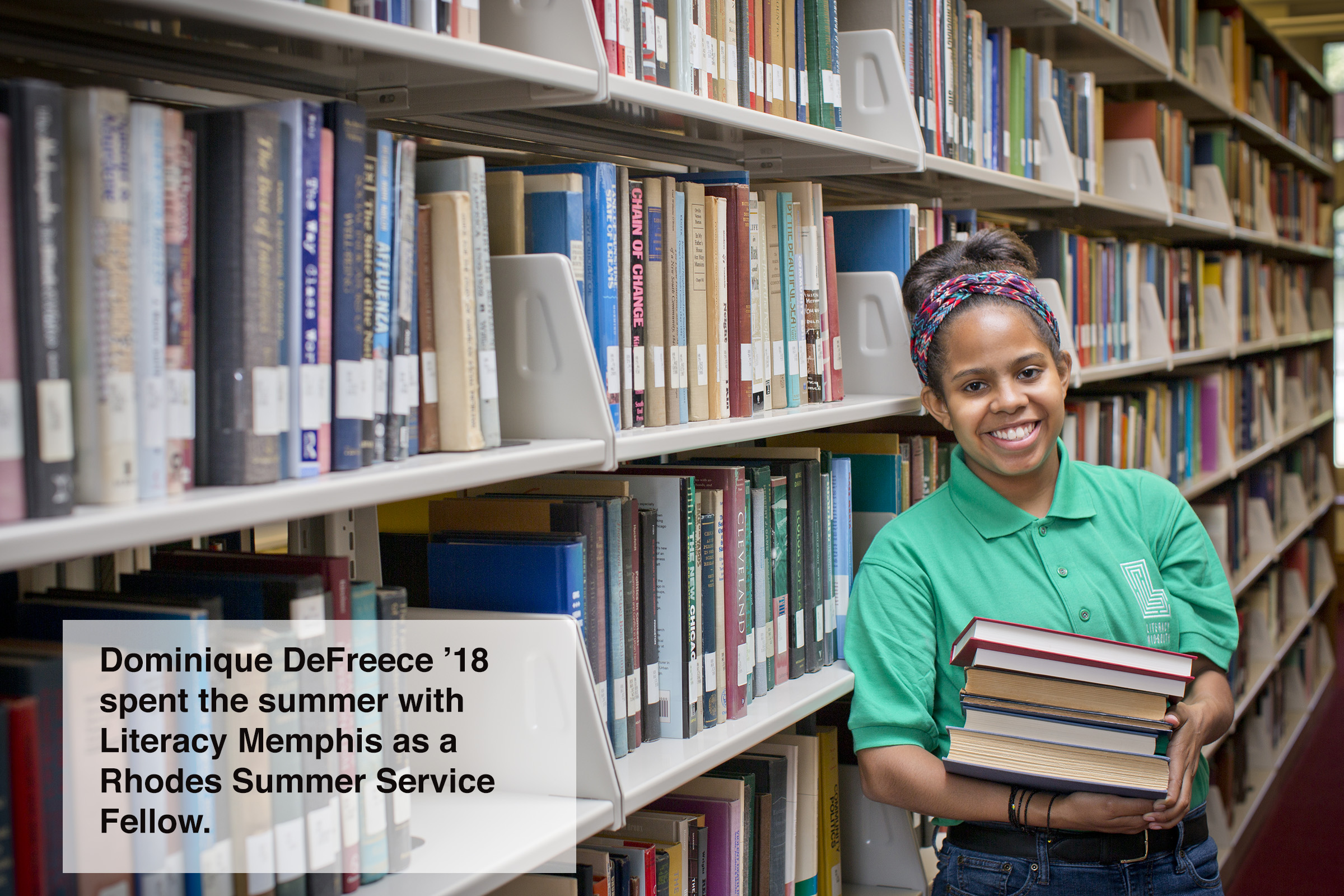
And while the students definitely enjoy Memphis, they also savor living on campus during the summer months. “The campus has a different feeling during the summer,” she says. “I think it is quite liberating for them.”
The students put in 35 hours a week at their fellowships and participate in weekly group training sessions and discussion meetings. Becka Hampton ’16, of Murfreesboro, TN, says the time spent with fellow participants and staff was very valuable to her.
“We examined issues we don’t usually have time to talk about in classes,” she says. “And it was so encouraging to discuss problems and concerns with the group.”
Hampton graduated in May with a commerce and business degree and started a job with PwC (formerly PricewaterhouseCoopers) in San Diego, CA, this summer. During her Summer Service Fellowship, she worked at the Church Health Center. “The center welcomed me like family,” she says. “And best of all, I feel like I made a real difference there.”
Hampton came up with a solution to speed up the Center’s gift acknowledgement process and initiated “Thank-a-thons” to ensure that donors received thank you notes and calls in a timely fashion. More impressively, she worked with accounting to determine four ways for the center to cut phone costs—saving the Center $10,000 a year.
Conor Monks ’17, of Mansfield, MA, is double majoring in urban studies and psychology. Originally interested in the nonprofit field in general, Monks found a lasting connection with the Boys and Girls Club.
“I worked at the Ira Samelson Jr. Branch, leading a nutrition program for children ages five to nine. On Mondays and Tuesdays, I taught nutrition lessons. On Wednesdays and Thursdays, my lessons involved actually making food with the kids—my favorite, because they really got involved and seemed to get a lot out of it. After my summer program ended, the Boys and Girls Club brought me on to work at the same branch, and I currently tutor and teach computer lessons to the kids every day.”
In the fall, students from both RIRS and the Summer Service program get the chance to reflect on what they’ve gained from their participation. The Memphis Research, Engagement, and Community History (REACH) Symposium showcases summer research projects and community involvement and highlights student passions and interests. Open to the public, the symposium allows students to share their experiences working with organizations and individuals in the Memphis area.
Research Fellows: Rhodes and St. Jude Work Together
“Staying in Memphis over the summer gets students out of the ‘Rhodes bubble,’ ” says Ellie Fratt ’18. “You have more time to enjoy Memphis without the pressure of classes and can get involved in the community, which ties in with the vision that Rhodes has for its students.”
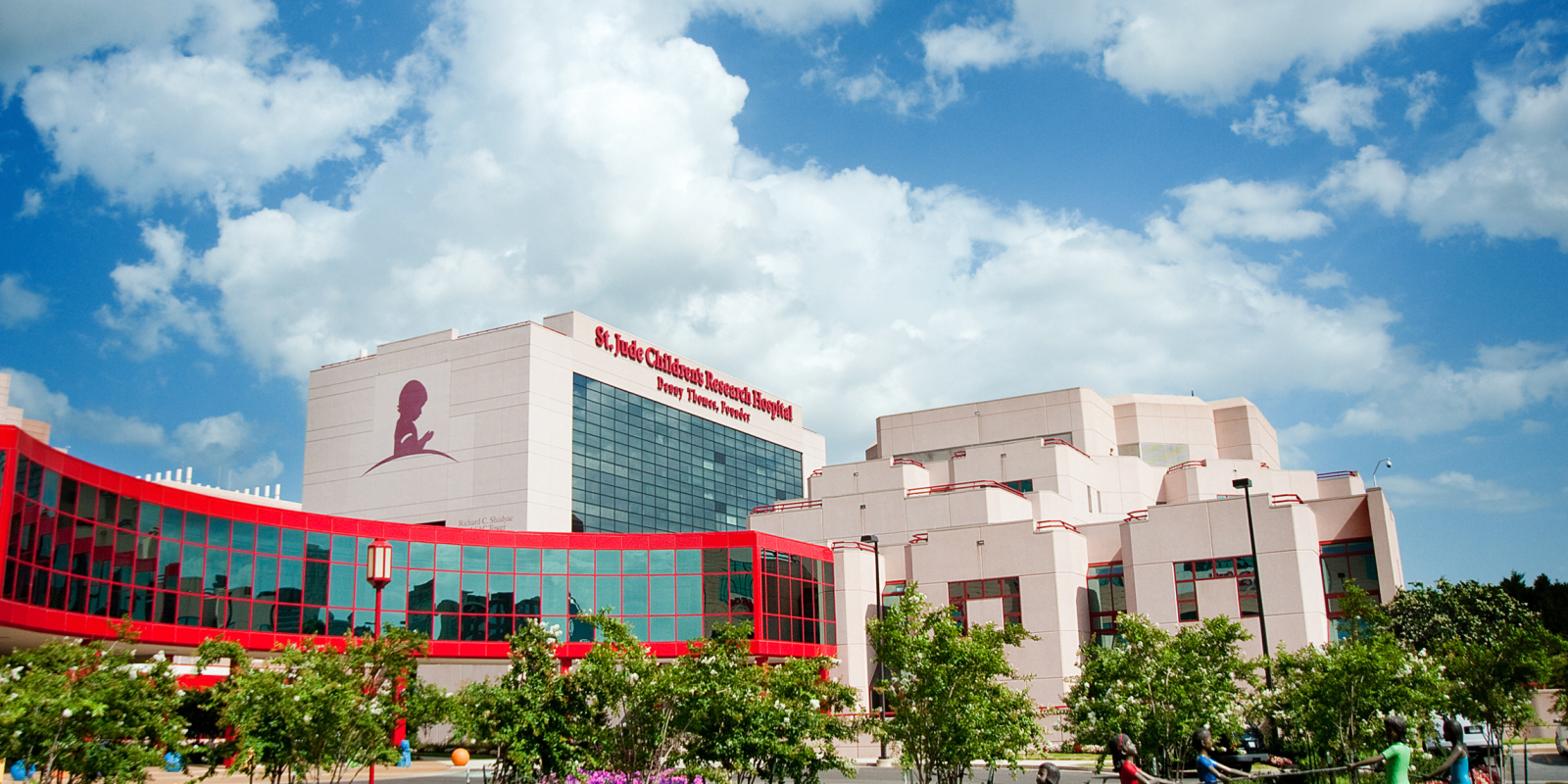
A neuroscience major, Fratt grew up in a small town in Wisconsin and learned about Rhodes from a college fair in high school. Since she was searching for a pre-med program, one of the biggest selling points was the school’s association with St. Jude Children’s Research Hospital—no other liberal arts college she looked at had anything like it, she says.
Fratt is looking forward to her second summer with the St. Jude Summer Plus program, a collaboration that offers qualified students a unique research experience. For two summers and the intervening academic year, Rhodes students work on research projects with St. Jude scientists, attend lectures, and participate in meetings and onsite discussions.
“The Summer Plus Fellowship is one of several Rhodes-St. Jude partnerships,” says Dr. Ann Viano, who helped pioneer the program and has been lead faculty member for the past eight years. “It is an outstanding student experience that places Rhodes undergraduates into the world-class research laboratories and groups at St. Jude. Summer Plus students make a 15-month commitment to the program, which allows them to become deeply and substantially involved in research.”
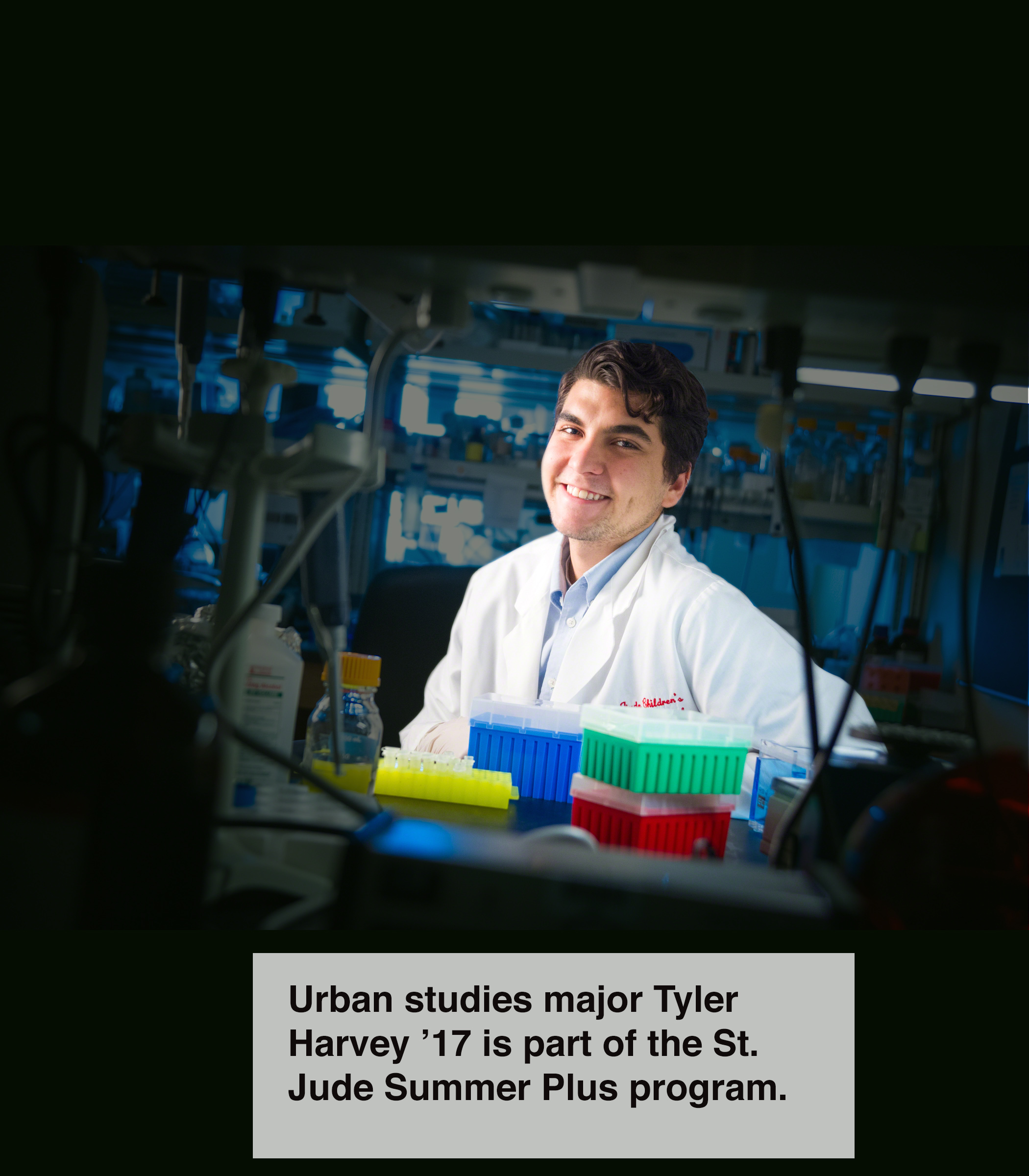 Fellows work full-time in the summers, and part-time during the academic year, beginning in mid-May and continuing through early August of the following year. Viano says the long-term involvement allows students to become independent researchers and take the lead on a project, similar to a graduate school experience.
Fellows work full-time in the summers, and part-time during the academic year, beginning in mid-May and continuing through early August of the following year. Viano says the long-term involvement allows students to become independent researchers and take the lead on a project, similar to a graduate school experience.
Fratt’s project partners her with the same St. Jude mentor for the entire 15 months. Her project entails the isolation and identification of enzyme inhibitors in natural products, focusing on certain plants found in Chinese herbal medicine. In layman’s terms, she says, she is trying to identify compounds that may prevent anti-cancer drugs from working properly.
Liz Bittner ’16, of Cincinnati, OH, also had the same mentor throughout her fellowship, and says the consistency was very helpful with her research, which focused on drug resistant bacterial pathogens among pediatric cancer patients in Mexico and Argentina.
“My mentor conducted previous research related to my project and, thus, had the means to help me start and complete my independent research,” she says. “Drug resistance is becoming an increasingly harmful and more prevalent threat, especially among immunocompromised children, which sparked my interest in it.”
Bittner presented her research at the St. Jude/Pediatric Infectious Disease Symposium in 2015 and 2016, and at the Rhodes College Undergraduate Research and Creative Activity Symposium (URCAS) in 2015. A biology major with a minor in environmental science, she was solely interested in clinical medicine and planned to pursue her MD before her time at St. Jude impacted her interests. In the fall she will attend the University of Kentucky College of Medicine to obtain a joint MD/PhD degree.
Viano says she feels most grateful for the program when a student articulates how the experience changed his or her view on what it means to be a scientist. “Students learn that science is much more than collecting and analyzing data; it is communicating that science and connecting with others all over to world to answer some of the biggest questions facing the field.”
Memphian Taylor Wilson ’16 says she learned that scientific research is something that greatly interests her, and wants to pursue it thanks to this experience. She too will begin work towards a joint MD/PhD degree in the fall. Wilson’s project was focused on determining the role of a chimeric protein implicated in acute megakaryoblastic leukemia. She presented her work at URCAS in 2014 and at the 2015 Southeastern Medical Scientist Symposium at Vanderbilt University.
“It has been an incredibly long road, and it required a lot of patience,” she says. “Having the support of my St. Jude mentor along the way reminded me that I was making some meaningful contributions towards scientific knowledge.”
James Stuckey ’17, of Atlanta, GA, is majoring in physics and will continue his research into radiation oncology, concentrating on proton therapy, for his second summer with the program. He says that what he most appreciates about the experience is the atmosphere of caring at St. Jude. “Seeing doctors and researchers eating together with the patients in the cafeteria puts things into perspective almost immediately, and the amount of work that is put in to making the kids feel comfortable and hopeful is astounding. If I ever feel tired or like I need a break from doing research, all I have to do is go grab some lunch and then see the people that all this research is going to help.”
“An integral part of the learning experience is taking the lessons learned from the classroom out into the world,” says Wilson. “This is what the St. Jude Summer Plus Program afforded me the opportunity to do. Regardless of major, it is important for students to be able to broaden their learning experiences to outside of the classroom.”
Outside and inside the classroom, summer at Rhodes is the time to expand horizons, catch up on coursework, build relationships, and take advantage of the best that Memphis has to offer.